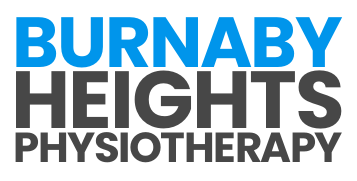
From Recovery to Prevention: The Benefits of Physiotherapy Exercises
October 31, 2024
Targeted Healing and Pain Relief: The Role of Acupuncture in Injury Recovery
November 29, 2024Physiotherapy is a proven method for managing pain, restoring mobility, and improving overall physical health. With its personalized approach, physiotherapy addresses a wide range of conditions, from workplace injuries to chronic illnesses, and offers significant benefits for people of all ages. In this guide, we’ll explore the effectiveness of physiotherapy in treating common ailments, preventing injuries, and enhancing overall well-being.
Common Conditions Physiotherapy Can Effectively Treat
Physiotherapy is a powerful tool for managing and treating a variety of conditions. Its versatility allows practitioners to address issues ranging from acute injuries to chronic illnesses:
- Acute Injuries: Conditions like sprains, fractures, and muscle strains benefit from physiotherapy’s ability to reduce inflammation and improve mobility.
- Chronic Pain: Long-term conditions such as arthritis, fibromyalgia, and sciatica are managed effectively with targeted exercises and manual therapy, improving daily functionality and reducing discomfort.
- Post-Surgical Recovery: After surgeries like joint replacements or ligament repairs, physiotherapy helps restore strength, flexibility, and range of motion while preventing complications like stiffness or scar tissue buildup.
- Sports Injuries: Whether it’s an ACL tear or rotator cuff injury, physiotherapy provides sport-specific rehabilitation to return athletes to peak performance.
By addressing the underlying causes of pain and dysfunction, physiotherapy helps people regain their independence and enjoy an improved quality of life.
Preventing Future Injuries: The Role of Physiotherapy
Physiotherapy is not only a treatment for existing problems but also a proactive measure to prevent future injuries. By focusing on strength, flexibility, and balance, physiotherapy prepares the body to handle physical stress more effectively.
For example, individuals prone to repetitive strain injuries or muscle imbalances benefit from physiotherapy’s targeted strengthening and stretching exercises. These treatments improve posture, enhance joint stability, and correct movement patterns, reducing the risk of future strain or injury.
Additionally, physiotherapists use biomechanical assessments to identify vulnerabilities in movement or alignment. For athletes, this means creating personalized training programs that address weaknesses and improve performance while reducing injury risks. For seniors, physiotherapy can prevent falls by enhancing balance and coordination.
With its focus on prevention, physiotherapy empowers people to lead more active, injury-free lives.
How Long Does It Take to See Results from Physiotherapy?
The timeline for seeing results from physiotherapy varies depending on factors like the severity of the condition, the individual’s health, and adherence to the treatment plan.
- Acute Injuries: For minor injuries, such as sprains or mild strains, significant improvement is often seen within a few sessions. Full recovery typically takes 4–6 weeks with consistent physiotherapy.
- Chronic Conditions: Managing long-term conditions like arthritis or back pain requires ongoing therapy, with noticeable improvements typically emerging over several weeks or months.
- Post-Surgical Recovery: Depending on the procedure, post-surgical rehabilitation can take months. For example, knee replacement recovery often spans 3–6 months, with steady progress through physiotherapy.
Regardless of the timeline, consistency is key. Clients who actively participate in their recovery process and follow at-home exercise routines tend to see faster, more sustainable results.
Is Physiotherapy a Good Alternative to Surgery?
For many conditions, physiotherapy provides a non-invasive alternative to surgery. By addressing the root causes of pain and dysfunction, it often eliminates the need for more invasive treatments:
- Joint Pain: Conditions like osteoarthritis or meniscal tears are often managed effectively through physiotherapy’s strengthening and mobility-focused approaches.
- Herniated Discs: With targeted exercises and manual therapy, physiotherapy can alleviate the pain and immobility caused by herniated discs, avoiding the need for surgical intervention.
- Pre-Surgical Preparation: Even when surgery is unavoidable, physiotherapy (“prehab”) prepares the body for the procedure by building strength and flexibility, leading to better post-operative outcomes.
While surgery may be necessary in some cases, physiotherapy offers a safe, cost-effective option that minimizes downtime and promotes natural healing.
Is Physiotherapy Effective for Workplace-Related Injuries?
Workplace-related injuries are a common issue, particularly for those with physically demanding jobs or repetitive tasks. Physiotherapy provides an effective solution for managing and recovering from these injuries. Conditions such as repetitive strain injuries, back pain from improper ergonomics, and carpal tunnel syndrome can all benefit from tailored physiotherapy treatments.
Physiotherapists address workplace injuries by focusing on restoring mobility, alleviating pain, and preventing recurrence. For example, manual therapy relieves tension in affected muscles and joints, while customized exercises build strength and flexibility to support proper movement patterns. Additionally, physiotherapists often provide ergonomic advice, helping individuals adjust their workspaces to reduce strain on the body.
For those returning to work after an injury, physiotherapy can ease the transition by gradually increasing activity levels and ensuring the body is ready to handle job demands. By addressing the root causes of workplace injuries, physiotherapy supports long-term recovery and reduces the risk of future incidents.
Can Physiotherapy Reduce the Need for Medication?
Physiotherapy is an excellent alternative to medication for managing pain and other physical challenges. Instead of masking symptoms, physiotherapy addresses the underlying causes of discomfort through techniques like manual therapy, therapeutic exercises, and modalities such as shockwave therapy or acupuncture.
People dealing with chronic conditions, such as arthritis or lower back pain, often find that physiotherapy reduces their reliance on painkillers. By strengthening muscles, improving joint function, and enhancing mobility, physiotherapy provides long-lasting relief without the potential side effects of medication.
In cases of acute injuries, physiotherapy promotes faster healing, reducing the need for prolonged medication use. For individuals seeking a holistic, drug-free approach to pain management and recovery, physiotherapy is an effective and sustainable solution.
Is Physiotherapy Suitable for People of All Ages?
Physiotherapy is highly adaptable and suitable for individuals of all ages, from infants to seniors. Its versatility lies in its ability to address age-specific physical challenges while promoting overall health and mobility.
- Infants and Children: For younger individuals, physiotherapy helps with developmental delays, congenital conditions, or injuries from play and sports. Pediatric physiotherapists use gentle and engaging methods to make therapy enjoyable and effective.
- Teens and Young Adults: During these active years, physiotherapy supports injury prevention, posture correction, and recovery from sports-related injuries or repetitive strain.
- Adults: For working professionals or parents, physiotherapy offers relief from back pain, joint stiffness, and posture-related issues caused by sedentary jobs or physically demanding routines.
- Seniors: Physiotherapy addresses age-related concerns like arthritis, osteoporosis, and reduced balance, helping seniors maintain independence, mobility, and overall quality of life.
No matter the age group, physiotherapy is tailored to meet individual needs, ensuring effective treatment and long-term results.
Enhancing Physical Fitness: The Role of Physiotherapy
Physiotherapy is not just for recovery; it’s also an excellent tool for improving overall physical fitness. Physiotherapists design personalized exercise programs that target strength, flexibility, balance, and endurance, helping individuals achieve their fitness goals safely and effectively.
For those new to fitness, physiotherapy provides a structured and gradual approach, ensuring exercises are performed correctly to prevent injury. For athletes and active individuals, physiotherapy enhances performance by addressing muscle imbalances, optimizing movement efficiency, and building resilience against strain or fatigue.
Physiotherapy also plays a role in supporting long-term fitness by educating clients on proper techniques and sustainable habits. Whether it’s improving posture, increasing stamina, or building strength, physiotherapy empowers individuals to maintain a healthier, more active lifestyle.
Find the Relief You’ve Been Looking For
Physiotherapy empowers individuals to take charge of their health, offering effective solutions for pain management, injury recovery, and fitness improvement. Whether you’re dealing with a specific condition or looking to enhance your overall well-being, the team of physiotherapists at Burnaby Heights Physiotherapy provides the tools and techniques to support your goals. Ready to experience the benefits of physiotherapy? Contact us today to begin your journey toward better health and a more active lifestyle.






